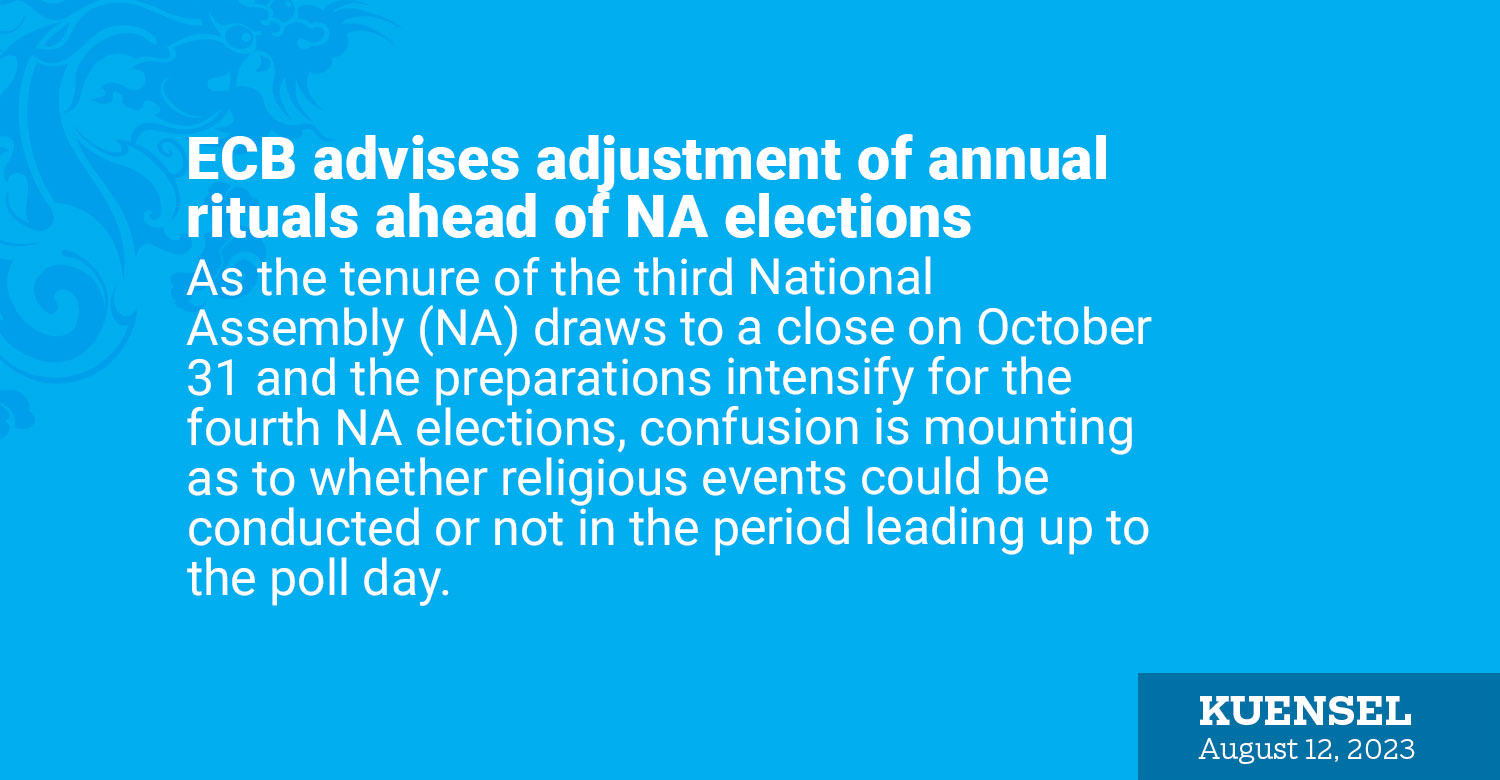Rinzin Wangchuk
As the tenure of the third National Assembly (NA) draws to a close on October 31 and the preparations intensify for the fourth NA elections, confusion is mounting as to whether religious events could be conducted or not in the period leading up to the poll day.
Some are expecting the Election Commission of Bhutan (ECB) to restrict the conduct of religious ceremonies and other social gatherings from October.
“I know the election period for the fourth NA elections would start from November after dissolving the present government, there is a rumour that ECB is likely to impose restrictions prior to the election period,” a Thimphu resident, who normally conducts ser-choe or ritual done in autumn after the Thimphu tshechu festival said.
“It is important for us to prepare so that the historic elections period does not coincide with our annual rituals,” he said.
Amidst rising concerns over a potential clash between the electoral period and traditional ceremonies, the ECB officials told Kuensel that social and religious events can continue until the end of October.
However, the commission encourages individuals and institutions to consider rescheduling or postponing such events during the election period, which is expected to commence in November. This recommendation excludes annual dzongkhag tshechus, traditional religious festivals, which fall mostly in November and December.
The commission stated that all social and religious activities will be subject to close scrutiny by the dzongkhag election authorities. For exceptional cases, institutions or individuals are required to submit applications for approval, especially for other significant annual calendar events or compelling needs, according to ECB officials.
The commission stated that the Dzongkhag Chief Election Coordinator will review the applications, on a case-by-case basis, and accord decisions, as deemed necessary.
The electoral process for the fourth NA elections is expected to span from November 2023 to January 2024, following the completion of the third NA’s tenure. The ECB is legally mandated to call for elections within 90 days after the conclusion of the preceding Assembly’s term.
“This a prime season for people in western Bhutan to conduct their annual choku or lochoe (a ritual to appease the local protective deities),” a corporate employee from Thimphu said, adding that the local astrologer normally decides when to conduct the annual ritual.
Another corporate employee from Dagana underlines the significance of deferring their annual choku ritual to ensure the smooth conduct of the elections.
Preparations for elections
The commission has conducted four regional workshops and undertaken the ‘Learning from Experience Programme’ to address issues and implement recommendations gathered from the 20 dzongkhags after the NC elections held last year.
The ECB, according to officials, is formulating strategies, standard operating procedures, guidelines, and frameworks to ensure the successful execution of the elections.
As the ECB is responsible for ensuring that elections are conducted in a free, fair, and transparent manner, preparations are in full swing for the upcoming NA elections that will mark the 15th year of a successful democracy.
In the coming weeks, all dzongkhag election offices are set to launch civic and voter education programmes across various sectors, including educational institutions, public servants, corporate employees, and other relevant agencies.
To disseminate information widely, the ECB is preparing election advisories and awareness materials that will be broadcast on national TV and shared on social media platforms, according to officials.


